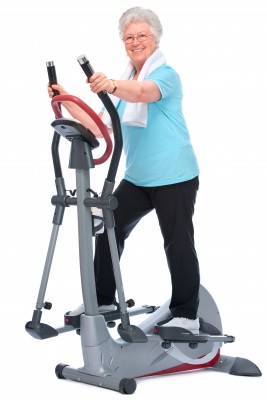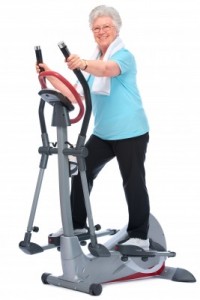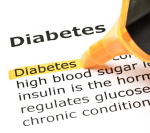
 There are 1,440 minutes in every day. Schedule 30 of them for physical activity!
There are 1,440 minutes in every day. Schedule 30 of them for physical activity!
Regular exercise is a critical part of staying healthy. People who are active live longer and feel better. Exercise can help you maintain a healthy weight. It can delay or prevent diabetes, some cancers and heart problems.
Most adults need at least 30 minutes of moderate physical activity at least five days per week. Examples include walking briskly, mowing the lawn, dancing, swimming for recreation or bicycling. Stretching and weight training can also strengthen your body and improve your fitness level.
The key is to find the right exercise for you. If it is fun, you are more likely to stay motivated. You may want to walk with a friend, join a class or plan a group bike ride. If you’ve been inactive for awhile, use a sensible approach and start out slowly.
If you’re not sure about becoming active or boosting your level of physical activity because you’re afraid of getting hurt, the good news is that moderate-intensity aerobic activity, like brisk walking, is generally safe for most people.
Start slowly. Cardiac events, such as a heart attack, are rare during physical activity. But the risk does go up when you suddenly become much more active than usual. For example, you can put yourself at risk if you don’t usually get much physical activity and then all of a sudden do vigorous-intensity aerobic activity, like shoveling snow. That’s why it’s important to start slowly and gradually increase your level of activity.
If you have a chronic health condition such as arthritis, diabetes, or heart disease, talk with your doctor to find out if your condition limits, in any way, your ability to be active. Then, work with your doctor to come up with a physical activity plan that matches your abilities. If your condition stops you from meeting the minimum Guidelines, try to do as much as you can. What’s important is that you avoid being inactive. Even 60 minutes a week of moderate-intensity aerobic activity is good for you.
The bottom line is the health benefits of physical activity far outweigh the risks of getting hurt.
If you want to know more about how physical activity improves your health, the section below gives more detail on what research studies have found.
The Benefits of Physical Activity
Regular physical activity is one of the most important things you can do for your health. Exercise can help strengthen your bones and muscles, keep you more flexible and improve your ability to do daily activities and prevent falls, if you’re an older adult, as well as:
- Help you control your weight
- Reduce your risk of cardiovascular disease
- Reduce your risk for type 2 diabetes and metabolic syndrome
- Reduce your risk of some cancers
- Improve your mental health and mood (and good news – sex counts as exercise!)
- Increase your chances of living longer
Source: Centers for Disease Control and Prevention


